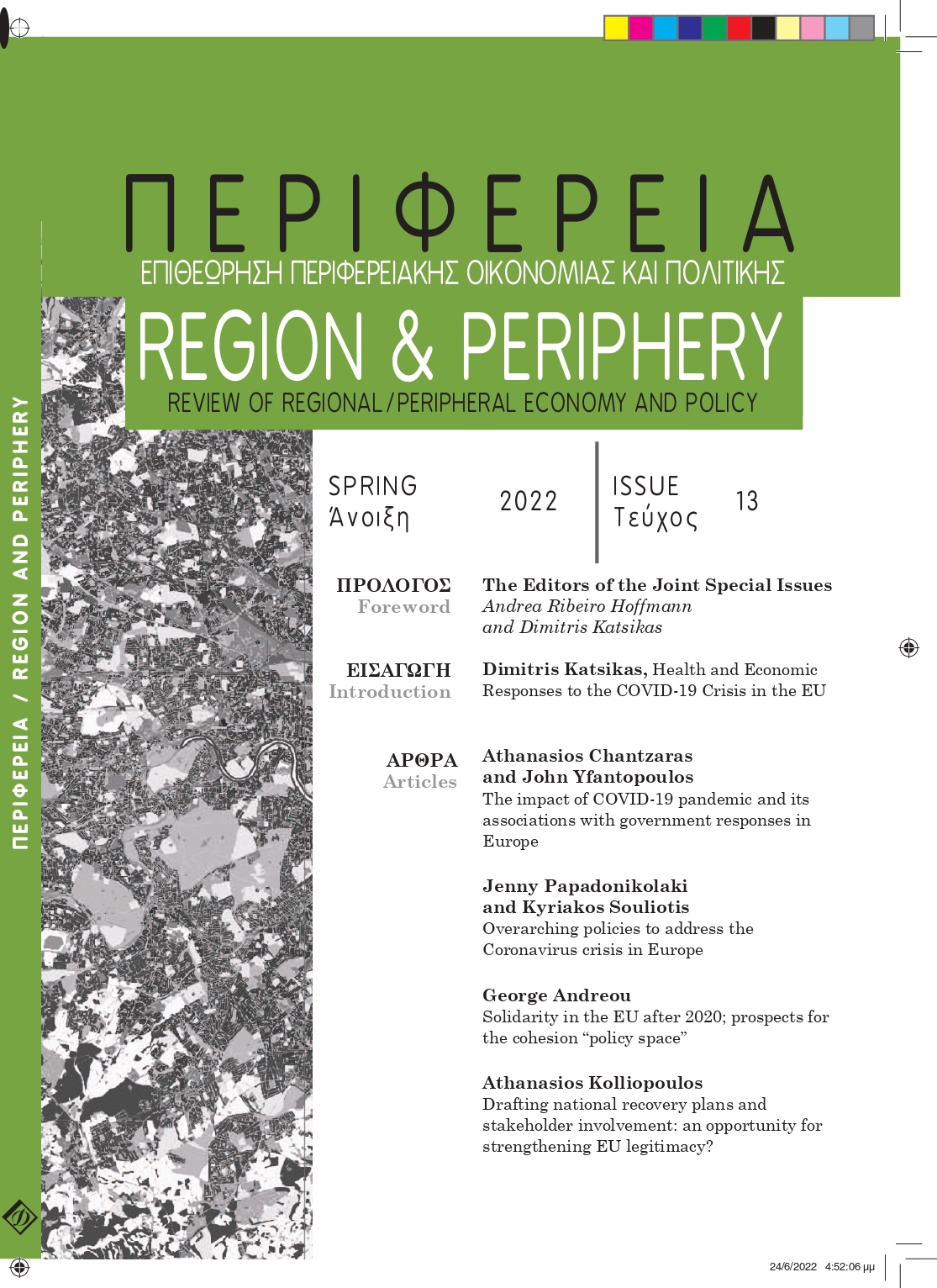Overarching policies to address the pandemic crisis in Europe
Abstract
COVID-19 pandemic has had a devastating impact on our world, affecting societies, economies, and healthcare systems across the globe, while changing many social, economic, and healthcare determinants. Europe is facing one of the most critical crises in its recent history, not only because of the economic challenges that the COVID-19 pandemic has created but also because of its significant political dimension. The aim of this paper is to provide a descriptive analysis of the different strategies European member states developed to monitor and contain the outbreak during the first wave, and the policy response of the European Union (EU) altogether. Despite the different approaches and time response in tackling the pandemic at its very beginning, EU quickly demonstrated a successful policy response that helped maintain the structure of the economy and sustain societies in the face of this exogenous shock.
Article Details
- How to Cite
-
Papadonikolaki, J., & Souliotis, K. (2022). Overarching policies to address the pandemic crisis in Europe. Perifereia | Regional Integration: Politics, Economics, Governance, 13(13), 41–64. https://doi.org/10.12681/rp.30757
- Section
- Research Articles

This work is licensed under a Creative Commons Attribution-NonCommercial 4.0 International License.
Authors who publish with this journal agree to the following terms:
· Authors retain copyright and grant the journal right of first publication with the work simultaneously licensed under a Creative Commons Attribution Non-Commercial License that allows others to share the work with an acknowledgement of the work's authorship and initial publication in this journal.
· Authors are able to enter into separate, additional contractual arrangements for the non-exclusive distribution of the journal's published version of the work (e.g. post it to an institutional repository or publish it in a book), with an acknowledgement of its initial publication in this journal.
· Authors are permitted and encouraged to post their work online (preferably in institutional repositories or on their website) prior to and during the submission process, as it can lead to productive exchanges, as well as earlier and greater citation of published work.



